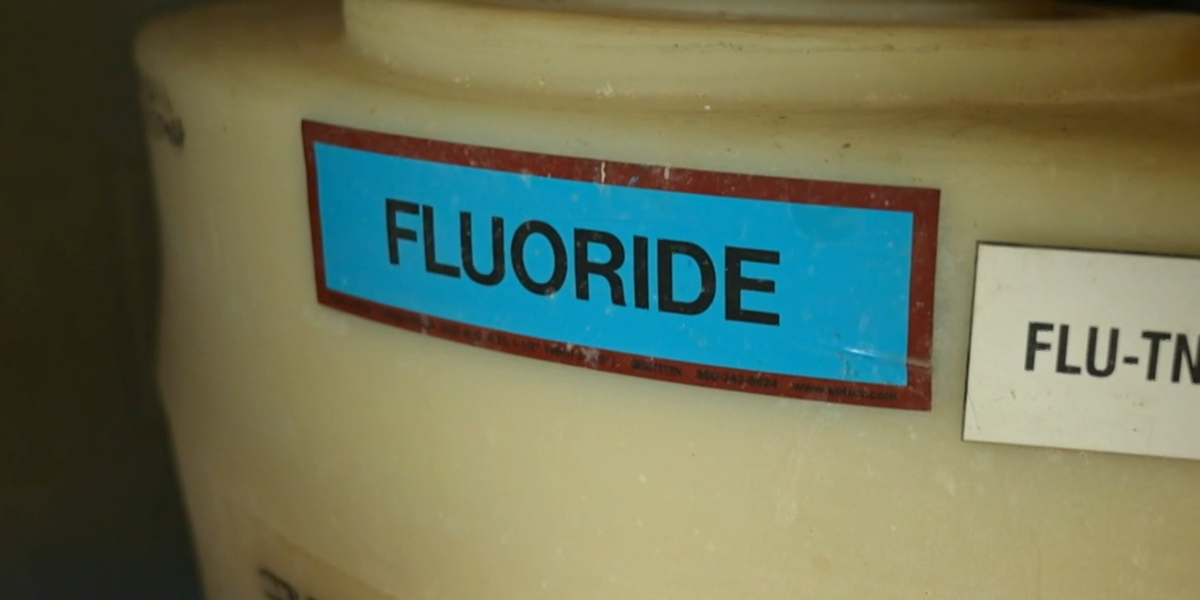This Thursday, Connecticut Governor Ned Lamont signed legislation that mandates the state to maintain fluoride levels at the same levels as they are currently. As the practice of adding fluoride to public drinking water, which has been around for decades, is facing renewed challenges, particularly from the federal government, the states of Florida and Utah have taken the initiative to prohibit the addition of fluoride to drinking water. Other states may follow suit.
During an interview with News, Arkansas state Senator Bryan King, who is also a cattle and poultry farmer near Fayetteville, expressed his “concerns” with the addition of fluoride to water.
Since 2011, when the state mandated that fluoride be added to the majority of public drinking water, King has thrown his anti-fluoride voice behind a handful of legislation that attempt to remove that law.
A naturally occurring mineral is fluoride. It prevents tooth decay and strengthens teeth at the same time. Ever since the 1940s, it has been incorporated into the public drinking supply in the United States.
The Centers for Disease Control and Prevention in the United States of America ranked fluoride as one of the top ten achievements in the field of public health during the 20th century.
In addition, according to the American Dental Association, “70 years of research, thousands of studies and the experience of more than 210 million Americans tell us that water fluoridation is effective in preventing cavities and is safe for children and adults.”
“If that’s the case, they need to individually go out to each water district and sell it to the people there, and let them make their own water decisions,” King explained to reporters.
This year, at least 19 states have discussed passing legislation that would either eliminate fluoride from public drinking water, prohibit its use, or make its use voluntary. The Secretary of Health and Human Services, Robert F. Kennedy Jr., is widely considered to be one of the most vocal opponents of fluoride.
In the most recent dispute over scientific evidence, those who are opposed to fluoride believe that exposure to excessive amounts of the chemical can cause harm to the kidneys and liver, as well as lower IQs in children.
Under the toxicology program of the National Institutes of Health in the year 2024, it was concluded “with moderate confidence” that there is a connection between high levels of fluoride exposure and lower IQs in children. As a result of research that involved fluoride levels that were approximately twice as high as the recommended limit for drinking water, this conclusion was reached.
The National Institutes of Health (NIH) research has been called into question by the American Academy of Pediatrics, which has pointed out that it has “important limitations,” such as the high fluoride levels, and that other investigations have arrived at various results about the hazards and benefits of fluoride.
After a research from the National Academy of Sciences in 2006 indicated that a lifetime of excessive fluoride consumption might lead to weakened and brittle bones and teeth, the Environmental Protection Agency (EPA) dropped the recommended level for fluoride in water in 2011. This was done in order to reduce the incidence of fluorosis, which is characterized by the appearance of spots on the teeth of children.
Lance McAvoy, who is in charge of the Fort Smith water system in Arkansas, shared his thoughts on the matter.
“We actually take samples every 15 minutes to verify the online equipment,” McAvoy said, adding that there had never been an incident of fluoride levels that were much greater to this point in time.
Kenton Ross, a dentist who also serves as the president of the dental association of Arkansas, is one of the dentists who believes that the scientific evidence that supports fluoride is incontestable.
When asked about the effects of adding fluoride to drinking water, Ross stated, “You’re going to see a 25% reduction in tooth decay.” “We have over 75 years of research over community fluoridation.”
It is possible that dentists will lose the fight against tooth decay if fluoride remains in the environment.
“It’s gonna affect the children the worst because if they don’t get it, we can’t put it in later in life,” Ross explained to reporters.


 by
by 

